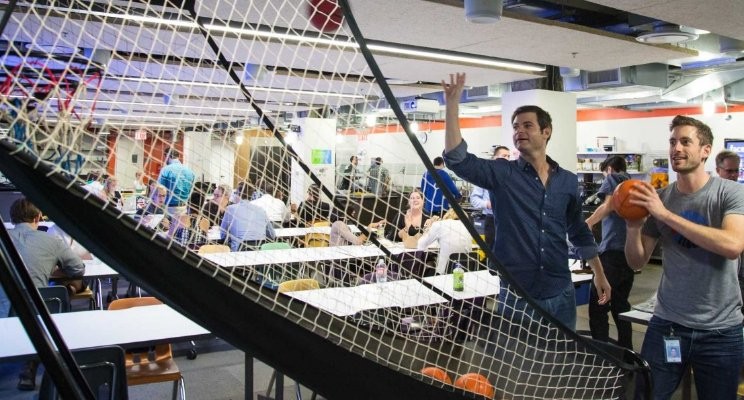
Culture is the New Salary: What People Really Want From Their Jobs
By Tammy Stone, The Psychology of Business
How do you stay competitive when employee perks are higher than they have ever been before? Netflix, Facebook, and Google pay top dollar and offer some of the best benefit packages to ever exist. On the other side, turnover rates are also higher than ever before. Today, the average person has four different jobs before the age of thirty two. Twenty years ago, the averaged person had only two jobs before they were thirty two (CNN Money). The question is, do better perks equal happier employees? See what we found keeps employees happy and tenured at a company.
The People
Good employees will stay at a company longer when they like their coworkers. The more people get to know each other, the better they work together. Our brains are hardwired to connect with each other. The modern workplace has become a community for people to get many of their social needs met (Forbes). It can become like a second family. Even though it’s hard to measure the return on investment for “fun” at work, it’s there. Look at attendance and attrition rates to see a difference. When employees feel the company is investing in them, they invest more in their job. The company’s success becomes their success.
Money vs Purpose
At a certain point, more money is not going to be a deciding factor. Money provides an initial incentive, but it will not keep employees happy at their jobs. Once our physical survival needs are met, we look for emotional fulfillment (SimplyPsychology). People want a sense of purpose with their jobs. They want something to work towards besides a paycheck. Feeling needed by your employees, or being good at your job, can be a much higher motivator than money. Money might attract new talent, but purpose will attract and keep talent.
Experience
In the last decade+ there has been a shift in career planning. People don’t worry about where they will be in thirty years, they worry about the next three years. The perks of a good work life balance, or job experience are more appealing than a good retirement plan. Historically, people start at a company, worked their way up, and retired there, but there has been a shift. The desire to disappear into a huge corporation until retirement is gone (Forbes). Without the long term incentive of retirement, what keeps them motivated? Experience. Innovative products and flexible work schedules have become the new pension plan.
Final Thoughts
Top talent wants more than a good paycheck. Money is still important, but it is not the only factor. Top companies focus on experience, people strategy, and innovation. Free food and a casual dress code are nice, but they won’t stop a rockstar employee from leaving. The best employees want to be challenged. They want to feel a part of something bigger than themselves. Even if employees don’t love their job, they will be excited about having a community and purpose at work.
Thanks for reading! Let me know your thoughts in the comments section.
Operations / General Management
6y"Top talent wants more than a good paycheck. Money is still important, but it is not the only factor" I am sure that statement resonates with some people. It certainly something I experienced in a previous role, however: I wonder how many readers think their money needs have been met now, so there are other things that are important for them to work for? Whilst my employer ranks very highly on the providing 'challenge', personal development, working for something bigger, having pleasant co-workers and 'purpose', all of this 'good stuff' would not stop me leaving for greater remuneration
CardioRenal Specialist
6y“The best employees want to be challenged. They want to feel a part of something bigger than themselves. Even if employees don’t love their job, they will be excited about having a community and purpose at work.” This is spot on! A sense of purpose and a feeling of be apart of something bigger than myself has always been my driver. I try to find it in everything I do from my first waitress job to the educator in a hospital to the career I have now..it is my “why”.
Executive level DEI and Multicultural marketer, Public Speaker, Fortune 100 experience
6yGreat article. I'm curious as to whether you find these strategies consistently successful across the cultures in your workplace (eg. African American, Latino, Asian, millennial, LGBTQ). I hear (and read) about many companies looking to focus on D&I as a way to create inclusive cultures in an effort to get to the same culture fit to which you seem to be referring. Thoughts?
Personal Growth, Solution Focused. Driven by Value and Inclusion. Language Learning, Strategic Planning and Resource Management Enthusiast.
6yGreat reading!